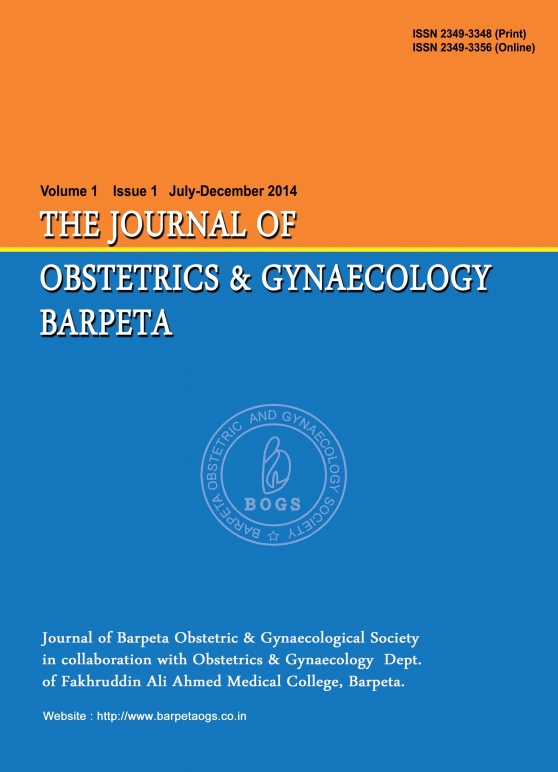
The New Indian Journal of OBGYN. 8(2):227-232
Association between pregnancy induced hypertension and maternal thyroid stimulating hormone levels - a hospital based observational case control study
Mahadevi Savanur, Anubha Kataria, Gauri Prabhu, Nitin Sutariya
ABSTRACT
Background: With rise in incidence of hypertensive disorders of pregnancy especially pre -eclampsia, there is a need to study its association with other comorbid conditions like thyroid disorder which may have common pathophysiology. Objective: The following case control study was done to know the association between pregnancy induced hypertension and serum thyroid stimulating hormone (TSH) level. Methodology: This case control study was carried out at tertiary care hospital from June 2018 to December 2018 wherein we compared mean TSH level among hypertensive pregnant women (case) and normotensive pregnant women (control) in third trimester. We also further analysed the differences of mean TSH level within hypertensive group based on severity. The total sample size consisted of 300 cases and 300 matched controls. Results: Mean serum TSH level was found significantly higher in the hypertensive (case) group i.e (2.81±2.08) as compared to the normotensive (control) group i.e (2.32 ±1.24) with p-value 0.0006. The association between pre-eclampsia and hypothyroidism was seen by odds ratio of 1.87 (CI= 1.06 - 3.27) for patients with severe pre-eclampsia, 1.41 (CI = 0.78 - 2.55) for patients with non severe pre-eclampsia and1.24 (CI = 0.66 - 2.33) for patients with gestational hypertension in comparison to the normotensive patients. Mean serum albumin was significantly lower in cases (3.22±0.43) as compared to control groups (3.30±0.38) with p-value 0.0122. However the correlation coefficient for the entire study population was (-0.0532) between serum albumin and serum TSH, which suggests both values were independent of each other. Serum uric acid was significantly higher in cases as compared to controls (p<0.0001). Conclusion: Biochemical hypothyroidism in pregnancy is associated with pre-eclampsia especially with severe pre-eclampsia. However Serum TSH values need to be adjusted to the population and hospital for cut offs for reliable diagnosis.
Volume 1 Issue 2
Volume 2 Issue 1
Volume 2 Issue 2
Volume 3 Issue 1
Volume 3 Issue 2
Volume 4 Issue 1
Volume 4 Issue 2
Volume 5 Issue 1
Volume 5 Issue 2
Volume 6 Issue 1
Volume 6 Issue 2
Volume 7 Issue 1
Volume 7 Issue 2
Volume 8 Issue 1
Volume 8 Issue 2
Volume 9 Issue 1
Volume 9 Issue 2
Volume 10 Issue 1
Volume 10 Issue 2

